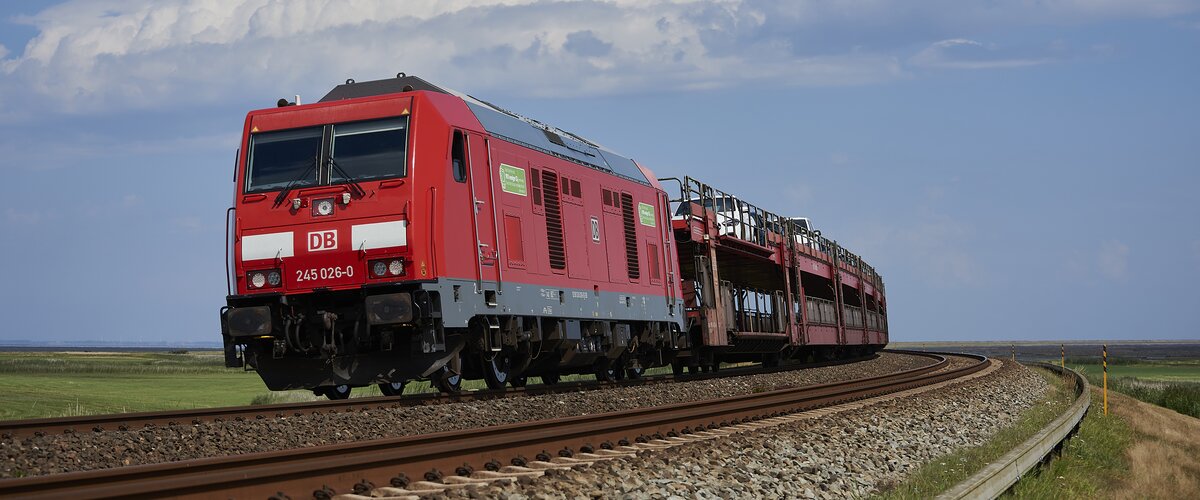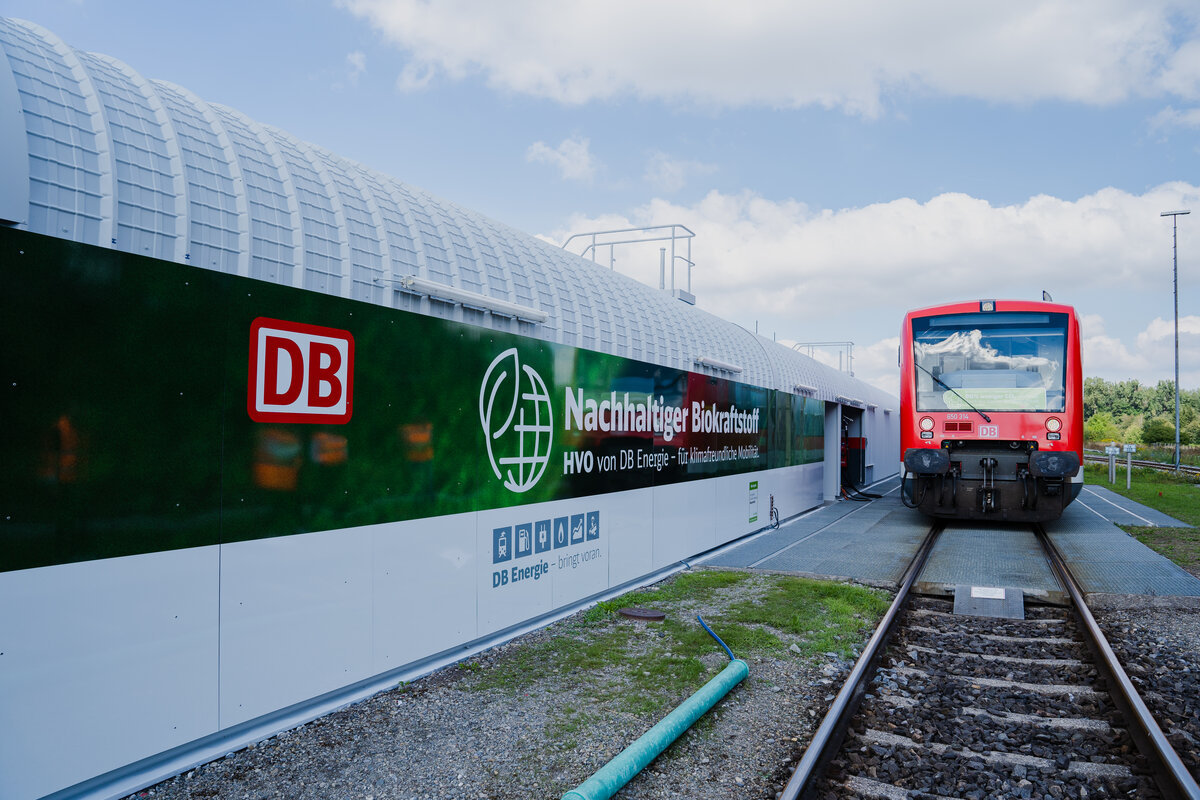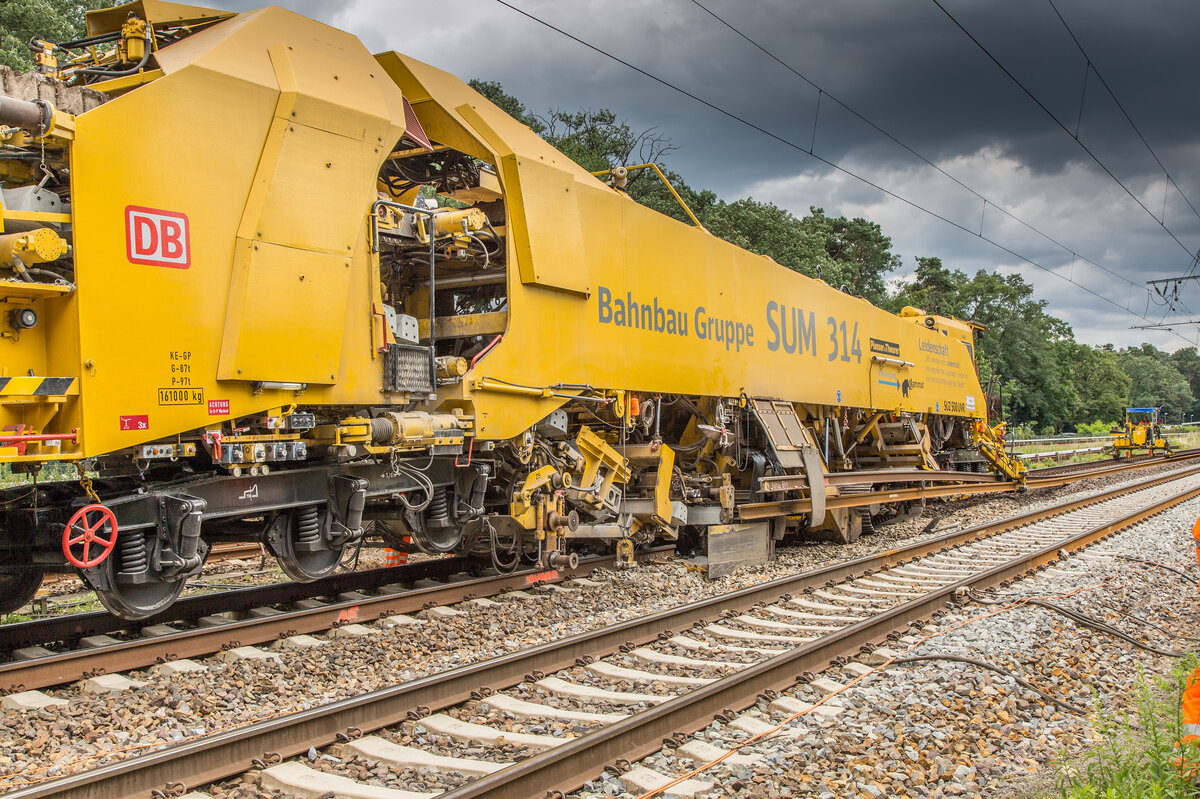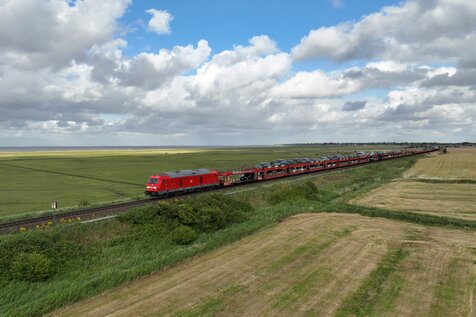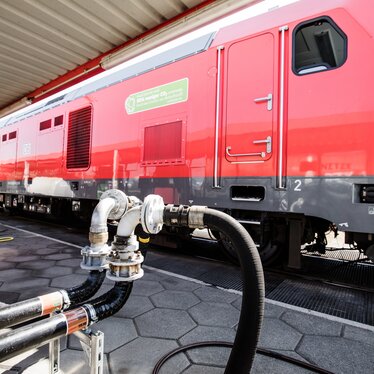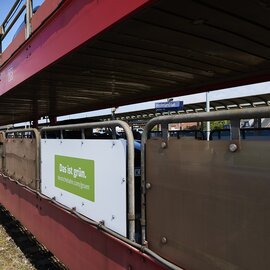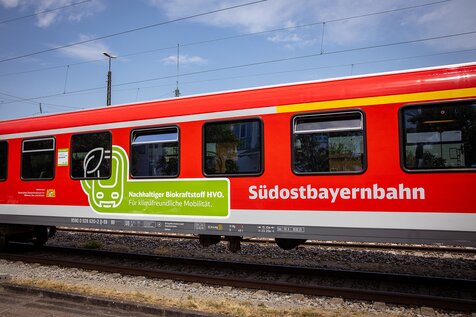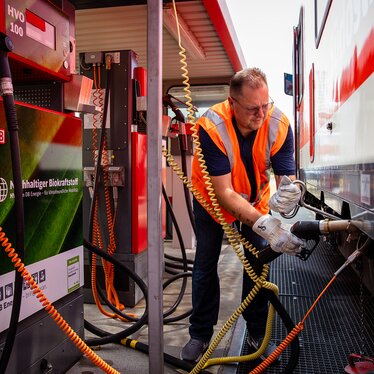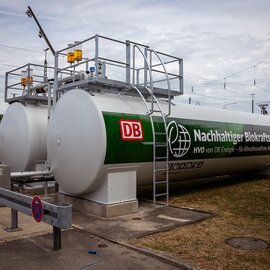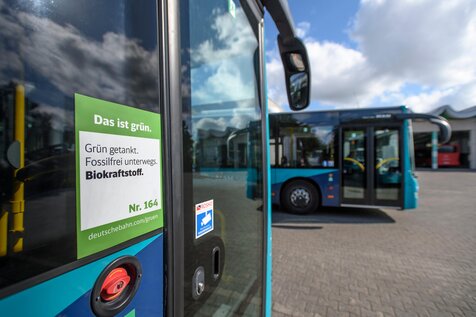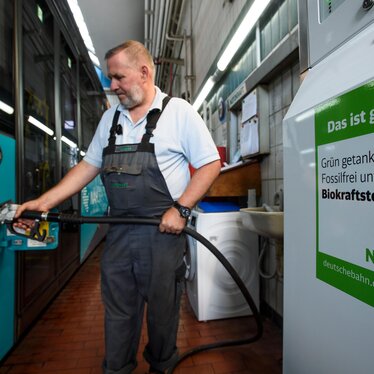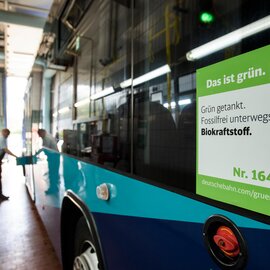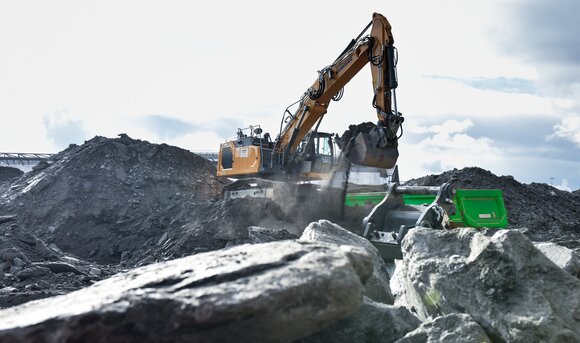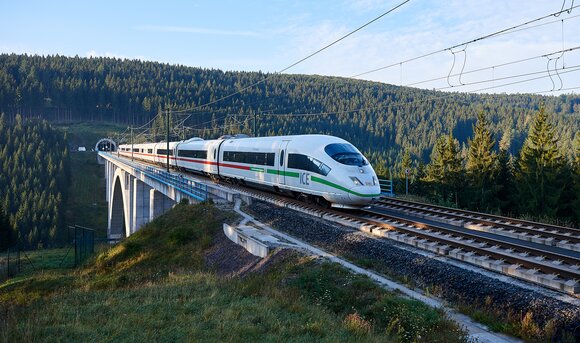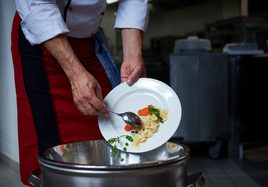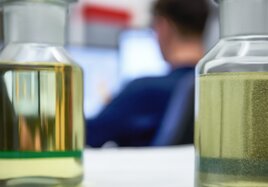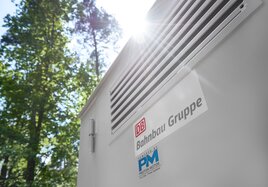Deutsche Bahn will become climate-neutral by 2040. To achieve this goal, the focus lies on the further electrification of the rail network as part of the decarbonization strategy. At the same time, there will also be routes in the future on which it will not always be able to transport goods and passengers to their destination electrically due to geographical or operational characteristics. Deutsche Bahn is therefore developing green solutions for refueling the diesel fleet on rail and road.
Biofuel in rail freight transport
Large loads often have to be transported in rail freight transport. There is currently still a lack of technical solutions to completely dispense with diesel engines. DB is therefore working on refueling the diesel fleet with alternative fuels and thus reducing greenhouse gas emissions. For example, DB Cargo offers its customers the opportunity to make rail transport even more climate-friendly on non-electrified routes as part of the Climate+ offer.
One lever on the path to climate neutrality is the expansion of alternative drives and fuels to replace fossil diesel. Specifically, the focus is on biofuels such as HVO (Hydrotreated Vegetable Oil). This fuel is produced from biological residues and waste materials. No additional agricultural land is used for its production, which could compete with food and animal feed production. It is also important that the biofuel is free of palm oil. For this reason, suppliers have to issue corresponding certificates confirming compliance with the high requirements.
Compared to conventional diesel, HVO produces up to 90 percent fewer greenhouse gas emissions. This is because combustion in the engine only releases CO2e that was previously removed from the atmosphere during plant growth. The rest of the greenhouse gas emissions are generated during the production and transportation of the fuels, so in the upstream chain. As part of its Climate+ service, DB Cargo offers its customers carbon neutral rail freight transport. DB Cargo ensures carbon neutrality by using 100 percent renewable power or HVO 100, depending on the route and requirements. DB Cargo offsets indirect and remaining emissions through recognized climate protection projects in accordance with VCS + Social Carbon / CCBS or the Gold Standard.
The use of HVO for the entire cargo fleet of shunting and mainline diesel locomotives in freight transport in Europe was tested and approved. The results show: The engines work perfectly and the performance is not affected by the biofuel. Locomotives in Italy are also switching from fossil diesel to biofuel, making the railways even more climate-friendly. At DB Cargo Italia S.r.l., for example, all locomotives near Cervignano and Brescia (in northern Italy) run on HVO.
Green refueling infrastructure
In order to supply locomotives with the new fuel, around 20 refueling stations in Germany have already been converted and long-term HVO purchase agreements have been concluded. DB Cargo in particular benefits from this in freight transport. Two of the largest filling stations in Germany are located at the classification yard in Halle (Saale) and Munich North. Here, diesel and shunting locomotives now fill up with HVO. However, both filling stations can also be used by other rail companies.
Biofuel in track construction
The entire fleet of trackwork vehicles of the DB Bahnbau Group has also been approved for refueling with HVO. This means that train drivers can refuel with biofuel wherever it is available. The two DB Bahnbau Group refueling stations in Königsborn and Augsburg have already been converted accordingly.
Climate-friendly Sylt Shuttle
Biofuel is also used at DB Fernverkehr. The Sylt Shuttle car trains are fueled with HVO. Therefore, around 7,300 tons of CO2e can be avoided on the rail route between Westerland and Niebüll every year. The intercity long-distance trains that run between Hamburg and Westerland will also be successively refuelled with HVO, so that by 2025 an increase in greenhouse gas savings across all Sylt transport services to around 9,300 tons of CO2e is expected.
Climate-friendly travel on regional transport
DB is also making regional transport even more climate-friendly for customers. DB Regio and the state of Baden-Württemberg are sending the first trains on the Aulendorfer Kreuz and Donau-Ostalb regional network with HVO. The diesel trains do not have to be specially converted for this. They refuel at DB's filling station in Aulendorf, which has been completely converted from fossil diesel to biofuel. This filling station can also be used by other rail companies.
In another pilot project, the DB subsidiary Kurhessenbahn and the Nordhessischer VerkehrsVerbund (NVV) are using environmentally friendly HVO. To this end, DB Energie has expanded the offer at the refueling facility in Kassel, so that trains can also access biofuel here. The regional trains of the Schwarzatalbahn in Thuringia are also running on HVO in a pilot project. The trains are refueled at the refueling facility in Katzhütte, which was upgraded for this purpose by DB Energie.
DB also runs around 20 trains on the Sauerland network using biofuel. To this end, a mobile tank container has been set up in Fröndenberg, which supplies the multiple units of the RB 54 line with HVO. In future, DB wants to use biofuel at other locations throughout Germany. This will make already climate-friendly regional rail services even more attractive for passengers.
In Bavaria, seven trains are running on climate-friendly HVO for the first time in a pilot project on the Südostbayernbahn. They are in operation on the Gäubodenbahn from Neufahrn via Straubing to Bogen and on the Rottalbahn from Mühldorf to Passau. DB Energie has equipped a filling station at Straubing station for refueling with HVO. We financed the equipment at the filling station together with the Free State of Bavaria. The additional costs for the HVO fuel will be covered by the Free State for at least one year.
Fossil-free on the road
HVO is an alternative to fossil diesel not only on the railways, but also on the roads. At DB Regio Bus, for example, the buses of Autokraft GmbH run on the climate-friendly biofuel. The first vehicles are on the road in Schleswig-Holstein in the Ostholstein Süd transport region. The biofuel can be used without costly conversions to the vehicles. Consumption, refueling time and driving behavior also remain the same. The buses can refuel at the first regular HVO bus filling station at the Autokraft depot in Neustadt.
At Regionalbus Braunschweig (RBB), all Deutsche Bahn buses operating in the Baddeckenstedt area (Lower Saxony) have been converted to run on HVO. And since February 2024, DB Regio has also been operating buses powered by the climate-friendly biofuel HVO in the Wolfenbüttel district.
